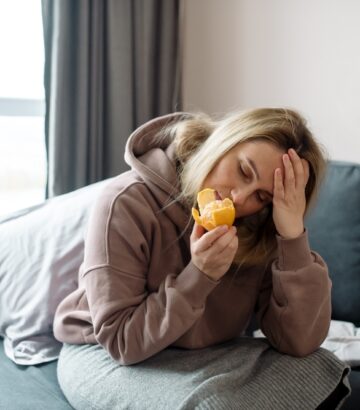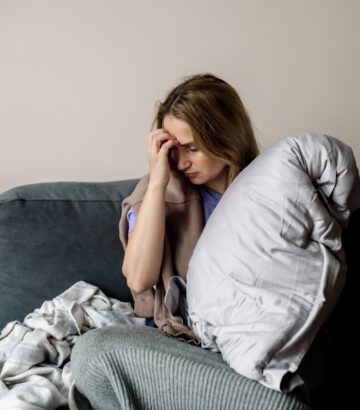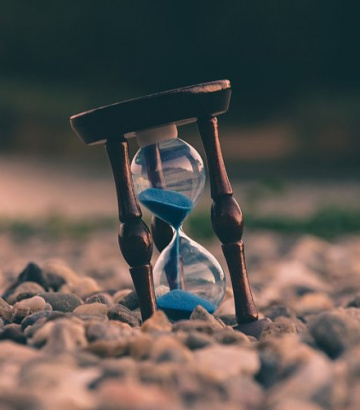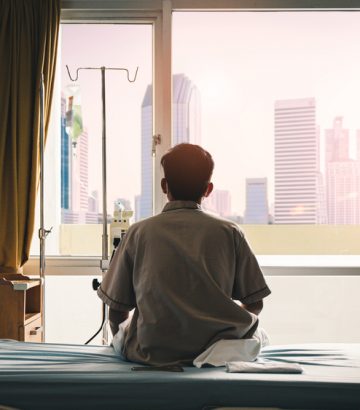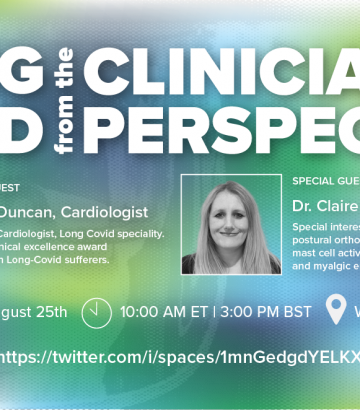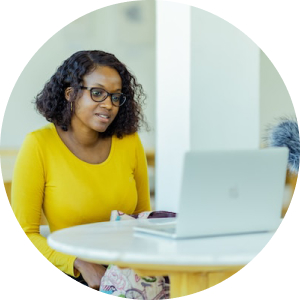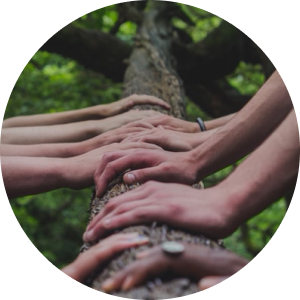We Need to Talk About Long COVID: A Sufferer on the Silence Around the Public Health Crisis
Original article written for Byline Times
Cat Fraser, who has lived with the chronic illness for years, says it’s time to get Long Covid on the agenda
and give its many victims the support they need.
11 January 2024

During my first term of university, I had a severe case of glandular fever. Seven years later, I was 24 and I had just moved in with my then-boyfriend after finishing a secondment at one of the first global digital agencies in Paris. One day, I started passing out in a quiet office by midday.
It took me almost crashing my car three times in one day (I haven’t driven since). and falling into what can only be described as a sleep coma at the weekends which often dragged on for days after, before I was given a diagnosis of the neurological disease Myalgic Encephalomyelitis (ME).
Unfortunately, this didn’t mean much to me or anyone else, so I carried on as normal – until my body finally forced me to stop for two years.
I was lucky. I was able to ignore the graded exercise therapy that was prescribed to me (I could barely walk up the steps to my front door), and Cognitive Behavioural Therapy was attempted and abandoned, as I barely had enough energy to talk to my partner at the end of his work day.
I didn’t see how either of these two things reflected my needs of extreme bedrest and a financial safety-net for me to be able to do so.
Thanks to family assistance I wasn’t forced back to working in an office straight away. I did regain some strength and managed to rebuild a career, often home-working which enabled me to work with big brands on short projects, followed by months of recovery.
But it also meant I rarely had any energy left over for anything else – or anyone.
My untreated chronic disease and on/off disability kept pushing me to the edge of my relationships, finance, work, tech and society.
And then in early 2020, COVID hit me.
As the world went back to learning to live out of lockdown, I found I wasn’t recovering and began to analyse all my health interactions during 2020.
I had spent £3,100 (and Bupa another £2,500) trying to find help in a siloed health system that was never designed to treat any of my health problems.
COVID Roulette
Last year, George Monbiot warned that “we are all playing COVID roulette” as 10-20% of infections can result in new health conditions and long term disability.
The public are still not being told that after the initial infection, the SARS-CoV-2 virus that causes COVID can confuse and disable our immune systems making us more susceptible to other viruses and diseases.
This is Long COVID, a multi-system, multi-organ complex chronic disease with no diagnostic, approved treatment or cure, that can trigger widespread inflammation and microclots which block capillaries, starving our cells, tissues and organs (including our brains) of oxygen.
People with Long COVID, and other chronic conditions including ME, have a dizzying array of symptoms and a shopping list of complex biomedical problems that will not show up in standard blood tests. They may be symptoms of or be followed by cardiovascular and neurological disease.
HR policies have been built around a healthcare system that didn’t teach ME at medical school as a biological disease, and there are known gender gaps in critical illness cover – favouring men over women, who are more likely to suffer from autoimmune disease).
Since the start of the pandemic, there has been a rise in workplace sickness absences of 45%, according to one survey, whilst a 2023 CIPD and Simply Health report found that 1 in 5 employers are unable to say whether employees are still experiencing Long COVID symptoms.
Employees who are not recovering are falling out of the workplace and even doctors with Long COVID are losing their jobs and homes.
By March 2023, reports suggested that 1.9 million people had self-reported Long COVID in the UK whilst 2.6m are out of work due to long term sickness and 3.7m have a work-limiting condition.
Long COVID is costing the UK an estimated £1.5bn in lost earnings a month whilst globally, the economic cost had already reached $3.7 Trillion in 2022.
But then across the world, governments, media, public health and business told everyone it was over, that we had won the war against COVID with vaccines. The message in the UK was, and is: “Now let’s never talk about it again.”
The subsequent removal of data and monitoring is making it harder to see and count the true cost of Long COVID to individuals, organisations and society.
What We’re Doing About It
During a raging pandemic that is still hurting us, social media became a digital home for myself and thousands of others, offering solidarity and validation.
We learnt from researchers, scientists and doctors with lived experience, how in a wellbeing economy, we would choose prevention including clean indoor air and rolling out HEPA filters in every school, hospital, office, shop, restaurant and home to reduce COVID sickness by over 80%,
We would not choose mass re-infection and forcing parents to send their sick children to school (who may be still infectious for 10 days), or may be one of the estimated 62,000 children in the UK with Long Covid.
We want employers to be pro-convalescence: accepting radical rest, pacing and making sure we don’t exercise our way back to health, as this can be dangerous.
We do not accept another carrot and sticks return to work programme, but want to build sustainable safety nets for those who can’t work such as Safe Sick Pay, a Universal Basic Income and a redesign of work to support the (mild) energy impaired back into flexible work opportunities such as two day a week (good) jobs, when they felt able.
And above all, through our global cooperation, we listen to those with lived experience, opposing the diversion of funding toward inappropriate psychiatric methods that have been shown to harm patients, and can create gaps in the medical system that can kill.
Instead, we would be investing in solving the root cause with a focus on biomedical treatments and the objective of curing all infection-associated chronic diseases.
Last year, the global community that I am part of started mobilising from their homes and beds, to create this future for themselves and others.
It saw the launch of the #UnhappyHolidays campaign by Long Covid Moonshot, the launch of a news platform dedicated solely to “The Sick Times”’, and Long Covid Advocacy educates with creativity and humour on our culture war and politics.
Through Berlin Buyers Club, International Long Covid Awareness and Not Recovered, we’re collaborating on a Long Covid Billboard campaign across the US and Europe, whilst Long COVID Groups have united efforts for the UK COVID Inquiry alongside a campaign to remind everyone #ItCouldHappenToYou.
And drawing on HIV/AIDS impact work, Long Covid Justice and Millions Missing (ME Action) are expanding their protests, toolkits, outreach and support for those with Long COVID in trans, black and other minority communities.
In 2024, it’s time to admit that we all need to work together and choose our health. Our community can help with that. We are still in the pandemic. It never went away.
WRITTEN BY
Cat Fraser is a health campaigner and writer. She is building a platform to connect hard-to-reach people with policy makers. She also coordinates a Business Group at the World Health Network, a science-based taskforce.


